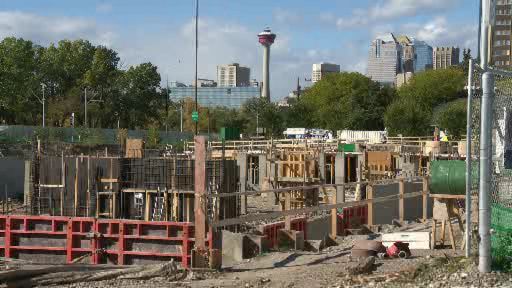CALGARY – Urban sprawl has long sparked debate in Calgary, one of Canada’s worst offenders. According to Ipsos Reid’s 2011 Canada’s Pulse poll conducted for Global News, curbing urban sprawl ranks second to controlling taxes and spending when it comes to what Calgarians feel city councillors should prioritize.

One in five say urban sprawl should be the top priority. It’s also the only priority that has increased in people’s minds over the last year.
“I think people understand that urban sprawl is not only environmentally unsustainable but it is also financially unsustainable,” says Mayor Naheed Nenshi. “The changes we are making to how the city grows will ultimately lead to a better tax situation to all Calgarians because we are no longer subsidizing building on the fringe.”
In the spring the city negotiated a new deal with developers that would cut city subsidies in half. Noel Keough, a member of the Sustainable Design department at the University of Calgary, says it’s simply not enough.
“I would give the city a C+. You can do better but you are moving in the right direction.”
Director of Land Use Planning and Policy Mary Axeworthy agrees.

Get daily National news
“Only 18 months since Plan It Calgary was adopted and we are seeing some exciting things happening. We are making great strides.”
Axeworthy points to the WEST LRT construction and transit oriented development at Westbrook Mall that will showcase the potential of rebuilding the inner city and linking it to transportation. She also cites existing inner city communities that are buying into the theory of building up, not out.
“We have objectives in the municipal plan for 30 years, 30 per cent of growth occurring in built up areas and over the long haul, we want 50 per cent of that growth happening in built up areas.”
The push and pull between developers anxious to bring products online and the city will continue; but Mayor Nenshi is adamant subsidising suburban sprawl is no longer an option Calgary can afford.
“Build great neighbourhoods. Calgarians have great choices in where they want to live but we are going to be doing so in a way that doesn’t put a financial millstone around the neck of everyone else.”








Comments